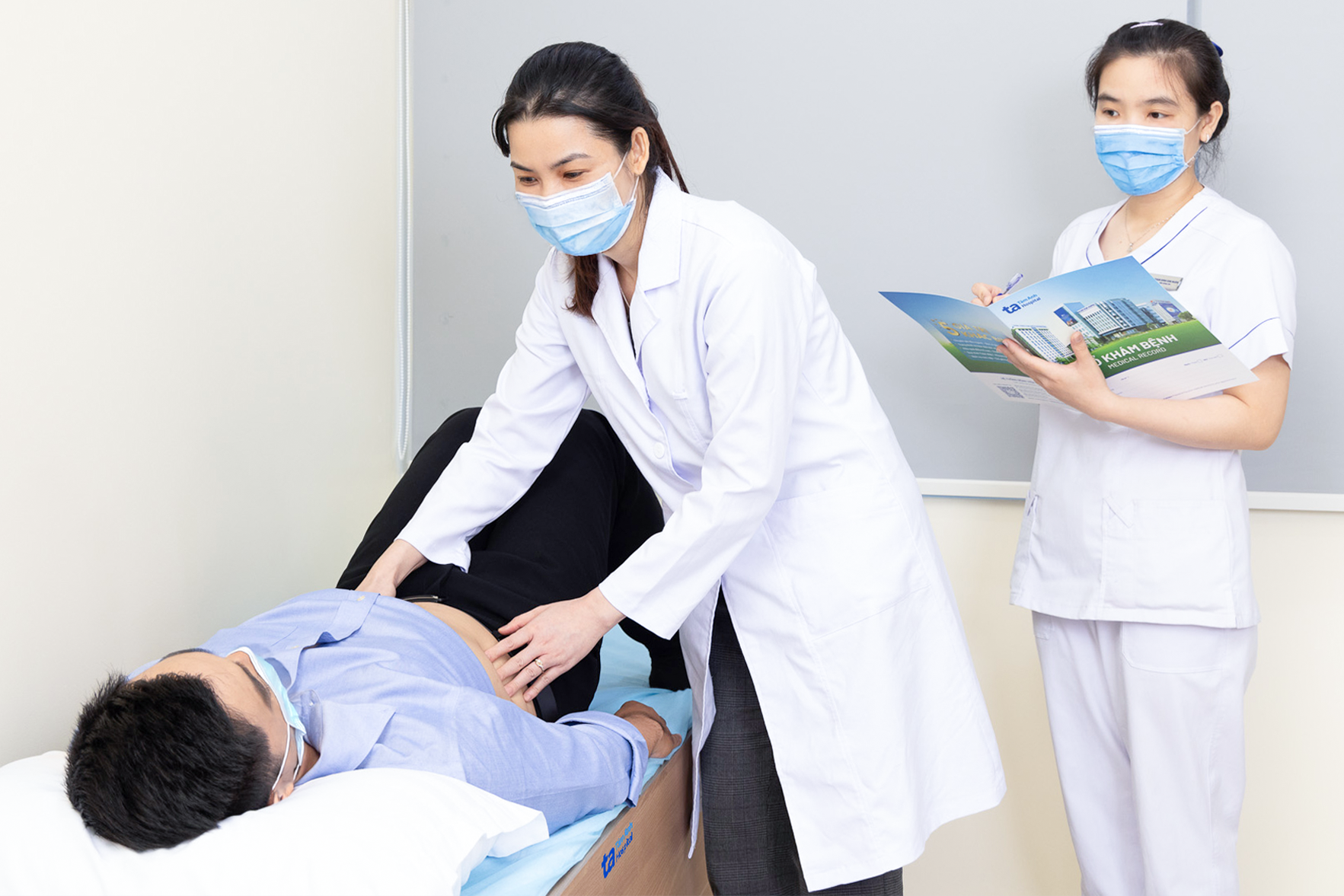Answer:
Indigestion refers to a cluster of upper abdominal symptoms, including feelings of fullness, early satiety, bloating, heartburn above the navel, nausea, belching, or pain and discomfort after eating. Bloating is a feeling of tightness in the abdomen due to gas buildup in the intestines, often accompanied by belching, rumbling stomach, or flatulence.
These symptoms can occur individually or simultaneously, typically after meals, and are often temporary functional disorders. However, if they recur frequently or persist, they may indicate an underlying digestive issue.
If bloating and indigestion are prolonged or accompanied by unexplained weight loss, poor appetite, abdominal pain, bloody stools, excessive vomiting, or persistent fever, consult a gastroenterologist as soon as possible. The doctor will conduct an examination and may order necessary tests to determine the cause, such as digestive disorders, functional dyspepsia, gastroduodenal ulcers, colitis, irritable bowel syndrome, or liver and biliary diseases. In some cases, the doctor may recommend a gastroscopy, colonoscopy, abdominal ultrasound, H. pylori test, or stool and blood tests.
 |
Doctor Oanh examines a patient's abdomen. Illustrative photo: Tam Anh General Clinic, District 7 |
Depending on the cause, patients may be prescribed medication to reduce stomach acid secretion, antacids, prokinetics, anti-flatulents, or digestive enzymes for a short period. Individuals with H. pylori infections require antibiotics following a specific regimen and should not self-medicate without a doctor's prescription.
Lifestyle changes are recommended, such as eating slowly, chewing thoroughly, and avoiding talking while eating to prevent swallowing air. Eat smaller, more frequent meals instead of large ones, and limit gas-producing foods like beans, cabbage, cauliflower, raw onions, fermented foods, carbonated drinks, artificial sweeteners, and alcohol. Avoid fried and fatty foods, spicy dishes, fast food, alcohol, and coffee, as they can stimulate excess stomach acid production, leading to indigestion.
Avoid lying down immediately after eating; instead, take a light walk about an hour after meals. Maintain a healthy weight, exercise regularly, manage stress, and avoid staying up late. Supplemental remedies like ginger, peppermint, and turmeric tea can sometimes help alleviate symptoms. If symptoms do not improve after implementing these measures, consult your doctor for further evaluation and a more appropriate treatment plan.
Master, Doctor Nguyen Hoang Oanh
Department of Gastroenterology - Hepatology - Biliary - Pancreatic
Tam Anh General Clinic, District 7
| Readers can submit questions about digestive diseases here for doctors to answer. |












